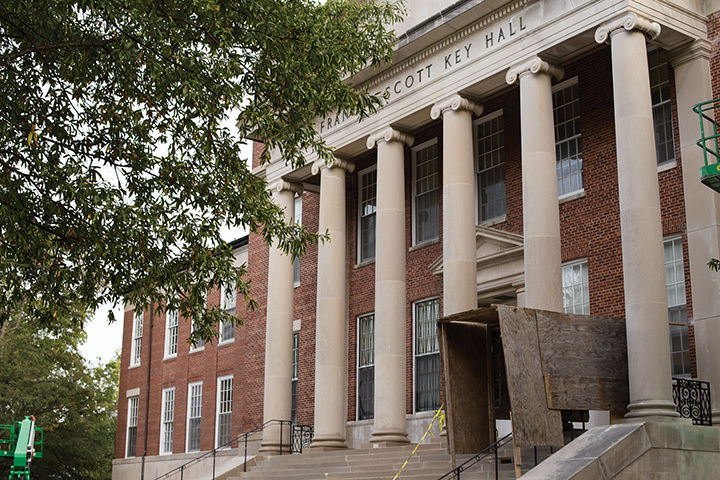The University of Maryland’s arts and humanities college is now accepting undergraduate and graduate students on its Collegiate Council, which represents all majors within the college and discusses issues with the dean.
Until now, the Collegiate Council included only tenure-track faculty and members of the Dean’s Office. Four undergraduate students were nominated to run for the undergraduate seat, and elections for the council will take place online on April 18. The highest vote-getter for each position will be elected to the council, whereas the second-place finisher will be the alternate.
[Read more: Thurgood Marshall Jr. talks policy and leadership to UMD community]
The council is open to undergraduate students, graduate students and representatives from the professional track faculty, said Alexander Williams, the council’s vice chair. Each of the four nominees will be elected by undergraduates within the college.
Once a month, the council discusses issues with the dean for about an hour. Council members can bring up any issue they want to talk to the dean about.
“This is a part of a larger university policy … to have more student voices in more places,” said Williams, a professor in this university’s linguistics and philosophy departments. “I certainly think it’s important for students to have a voice and this is a good form.”
[Read more: Graduate Student Government struggles to maintain meeting attendance among representatives]
The college currently does a fair job of representing students, said freshman history major Jack Singelstad, but there is always room for better student involvement.
“Overall, the College of Arts and Humanities does a good job, but the council is important to have collaboration between students and faculty,” Singelstad said.
Reid Buskirk, Kari Gillman, Jasmine Melak and Brendan Xu are the four undergraduate students nominated to run for the council.
Buskirk, a freshman English and government and politics major, said students are more in touch with the college than the faculty, simply by being in classes, and thus deserve to have a voice in the council.
“I’m in classes every day. … I’m building relationships with faculty and with my professors,” Buskirk said.
Buskirk also plans to establish a week devoted to the college.
“One of the first things I would bring in as an initiative is to have a week that really puts the focus on the arts and humanities, the ways you can use it in the world and the ways it can enrich people’s lives … and the way it can get you great opportunities past college,” he said.
Gillman, a junior art history and studio art major, argued it is important for smaller majors to take part in the discussion.
“Specifically, the art history department … is a small department, but students are very passionate about the topic that they’re studying,” she said. “It’s important for our voices to be heard as well as all the students across campus.”
Xu, a junior English major, hopes to bring more attention to the humanities at the university.
“There is a lack of funding to the College of Arts and Humanities as opposed to other departments, such as the athletic department and STEM majors,” Xu said.
As a council member, he would be in a good position to advocate for balanced funding across all departments, Xu added.
Melak, a freshman public policy and women’s studies student, was inspired by her major to join the council.
“The women’s studies department stands for … intellectual freedom and social justice and equality for all people,” she said. “That’s one of the reasons I wanted to be on the council — for the women’s studies department to further that commitment that I strive for in my education.”
She added that the department is very strong in advocating for diversity and inclusion and hopes to further that cause.
Students in the college can vote online on April 18.



